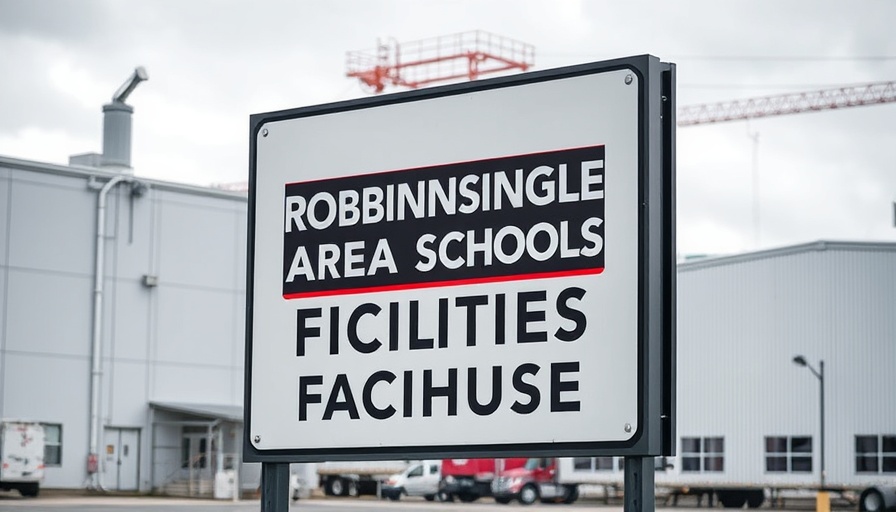
Understanding the Court's Decision That Impacts Educational Spaces
The recent ruling by a Minnesota court in favor of the New Hope city council against the Robbinsdale Area School District (Rdale) has caused quite a stir in the community. The case revolved around a proposed conversion of a former warehouse into classroom spaces aimed at addressing the growing educational needs within the district. This ruling not only impacts the immediate situation at hand but also raises broader questions about how communities can adequately provide for their educational infrastructure.
The Significance of the Case for Community Growth
As communities expand, especially with an influx of new residents and families, the demand for educational facilities tends to increase. The ruling in favor of New Hope reflects the necessity for local governments to prioritize educational investments. The decision essentially supports the idea that cities should actively assist schools in acquiring suitable spaces that can foster learning environments, thereby enhancing the quality of education available to students.
What This Means For Local Residents and Property Owners
Residents of New Hope and property owners are likely to feel the effects of this decision in various ways. With the potential for better educational facilities being established, property values might increase as families seek locations near improved schools. Furthermore, community offerings may expand alongside these enhancements, providing not just educational benefits but also boosting local businesses and services.
Challenges Facing Educational Initiatives in Urban Settings
While the court ruling is a step in the right direction, it also highlights challenges that urban areas face concerning space for education. Often, urban settings must navigate complex zoning laws and community preferences, which can slow down the establishment of new educational facilities. It’s essential for local governments and school administrations to collaborate transparently with residents to find solutions that meet everyone’s needs.
Broader Implications for Educational Policy
This case mirrors similar challenges across the country, where schools are often underfunded and struggle to find adequate spaces. As many urban school districts grapple with similar issues, this ruling could serve as a precedent for other educators and local governments looking for innovative ways to utilize existing structures for schooling. It encourages stakeholders to think creatively about the use of abandoned or underutilized buildings.
Engaging the Community in Educational Discussions
It's vital for communities to engage in discussions about educational needs and potential solutions. Open forums and town hall meetings can serve as platforms for voicing concerns, sharing ideas, and fostering collaboration between citizens and local authorities. The engagement of homeowners, property managers, and landscaping professionals can enrich this dialogue, ensuring a robust input from all community members.
As New Hope moves forward in implementing educational improvements, homeowners and community leaders alike should consider the impact of such transformations. From enhancing property values to promoting a thriving school district, the potential benefits are immense. For those interested in the implications of this ruling or looking for professional lawn care services to enhance their property, contact local experts such as Everett Lucas at 231-450-3414 for assistance.
 Add Row
Add Row 
 Add
Add 


Write A Comment